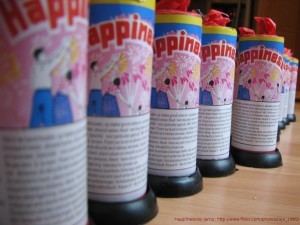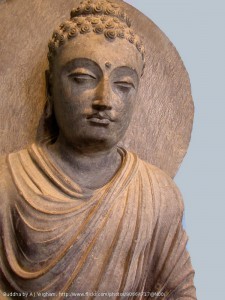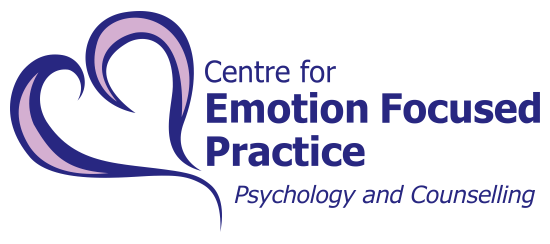You Can’t Make Sense of Happiness if You Don’t Know Sadness
 How many of us can truly claim that we are content with our lives? Humans, by nature, are ambitious beings. We want the best in everything, for us and for our children, and we all chase after success and happiness.
How many of us can truly claim that we are content with our lives? Humans, by nature, are ambitious beings. We want the best in everything, for us and for our children, and we all chase after success and happiness.
The wish to succeed in life is what keeps us going, but is this constant pursuit of happiness making us unhappy?
The Happiness Trap
According to a recent article by Jill Stark for The Age, we are caught in a happy trap. Jill says that the “feel-good, think positive” motto promoted by life-coaches and self-help gurus is backfiring. When people are unhappy with their daily struggles and disappointments, they are actually starting to think that something is wrong with them. Psychologists argue that these people are reluctant to deal with negative emotions; instead, they put on a facade of happiness and continue to repeat their positive mantra.
Moreover, in the name of boosting “self-esteem”, parents these days shower their children with praise and tell them how smart and special they are. Constant praise only feeds the ego and the children end up being unable to cope up with failure.
We all love our children and we love to indulge them, but there are parents who fulfill the slightest desire of their children – and these kids grow up to be selfish. Indulging your child is okay, but not always. If your child wants something, let him or her work for it. I know some teenagers who are bored with life because there is no challenge when their every want is fulfilled by their affluent parents.
 There are some overprotective parents who shield their children from adversity, leaving them confused and disadvantaged when they go out into the real world. This reminds me of the story of Buddha, who was born a prince and brought up in great luxury, only to become an ascetic.
There are some overprotective parents who shield their children from adversity, leaving them confused and disadvantaged when they go out into the real world. This reminds me of the story of Buddha, who was born a prince and brought up in great luxury, only to become an ascetic.
The Story of Buddha
When he was a baby, it was prophesied that Prince Siddhartha (as he was called then) would either become a great conqueror or a holy man revered by all. His father was determined that his heir would become a great king and shielded Siddhartha from all suffering. The prince lived a life of pleasure with no knowledge of the real world until one day he decided to step out of the palace walls. As the story goes, out of curiosity the prince asked his charioteer to take him on a journey to see his country and his people. For the first time in his life, he saw the sick, the aged, and the dead. The prince came back to the palace a changed man. He decided to renounce his life of pleasure and become an ascetic in search of the meaning of life. After years of searching for the truth, Buddha finally achieved enlightenment.
Buddha realised that neither a life of pleasure nor a life of renunciation of all things material could truly make a person happy – there has to be a middle ground. According to Buddha, life is “dukkha“, a word with many meanings, including suffering (mental, physical, or emotional), impermanence or change (even happiness is “dukkha”, because it will end), and dependence or affectation. Unhappiness springs from this “dukkha”. We are continuously searching for means to make us happy, but we are never satisfied and there seems to be no end to our craving. Buddha said only with practice – with mindfulness – can we put an end to this craving.
The Lessons We Can Learn
Buddha lived over 2000 years ago, but his teachings are still relevant.
Boosting self-esteem in children in okay, but are we forgetting to instill in our children that life can be a struggle? Wouldn’t it be better if we teach our children to work hard, try their best, accept failures, and move on?
Success and happiness may be what we aim for, but wouldn’t it be better if we accepted that life is full of ups and downs – that there is no permanent happiness or sadness?
Why should we be obsessed with happiness alone and ignore the richness of our emotional spectrum? Every human emotion, every mood, is natural and essential. Even depression, as Dr. Melissa Harte says, is a coping mechanism that allows us to introspect. We should embrace emotions, understand them, and thus live life at its fullest. We cannot make sense of happiness without first experiencing sadness. We won’t know the value of success unless we have known failure.
Psychologists at the Centre for Emotion Focused Practice

Lara Ryan
Child, Adolescent & Adult Psychologist
I am a registered psychologist that works with individuals of all ages to really get to the heart of what it is they want and need to live a full life.

Virginia Henningsen
Registered Psychologist
I assist individuals in developing skills to manage their lives, gain enjoyment from their life, and lift and bolster their general feeling of well-being.

Lyn O’Grady
Child, Adolescent & Adult Psychologist
As a Registered Community Psychologist, I have worked with parents in community settings for approximately 10 years as well as with children and young people in school settings for 10 years.

Susanne Goldie
Psychologist
I work with a wide range of individuals in a non-judgemental, holistic way to understand each person’s unique circumstances and support them in achieving their goals. I work with people of all ages.

Hannah Lethbridge
Registered Psychologist
I provide a warm environment for clients to express their thoughts, feelings, and struggles in a safe way. My clients value the collaborative approach I take when we work towards their therapeutic goals.

Geoff Newbegin
Counselling Psychologist & Psychotherapist
I am an experienced counsellor and psychologist with over 15 years of experience, which includes a wide range of clinical experience.

Lucas Silva-Myles
Registered Psychologist
My therapeutic approach is firstly to hear your story and understand what you are going through without judgement.

Hannah Kroussoratsky
Counsellor
Gentle, caring and encouraging, my desire is to truly hear your story and create a safe space for you to grow and flourish. I have a genuine commitment to your whole self – body, mind, heart and spirit – and my integrated therapeutic approach allows for your holistic care and transformation.
If you are looking for help, whether for yourself or for a loved one, our psychologists can assist in exploring underlying issues through therapy. Please visit our practitioners’ page to find out more, or call (03) 9820-5577 for an appointment or to make enquiries.
Related Articles
- When to Visit a Psychologist
- Dealing with Stress
- Stress at Work
- How Can We Build Resilience?
- Problem Solving: A Psychological Perspective
- Trauma Counselling
- Top 5 Things to Do to Support a Family Member with Depression
- Coping with Loss and Grief
- Grief and Recovery




